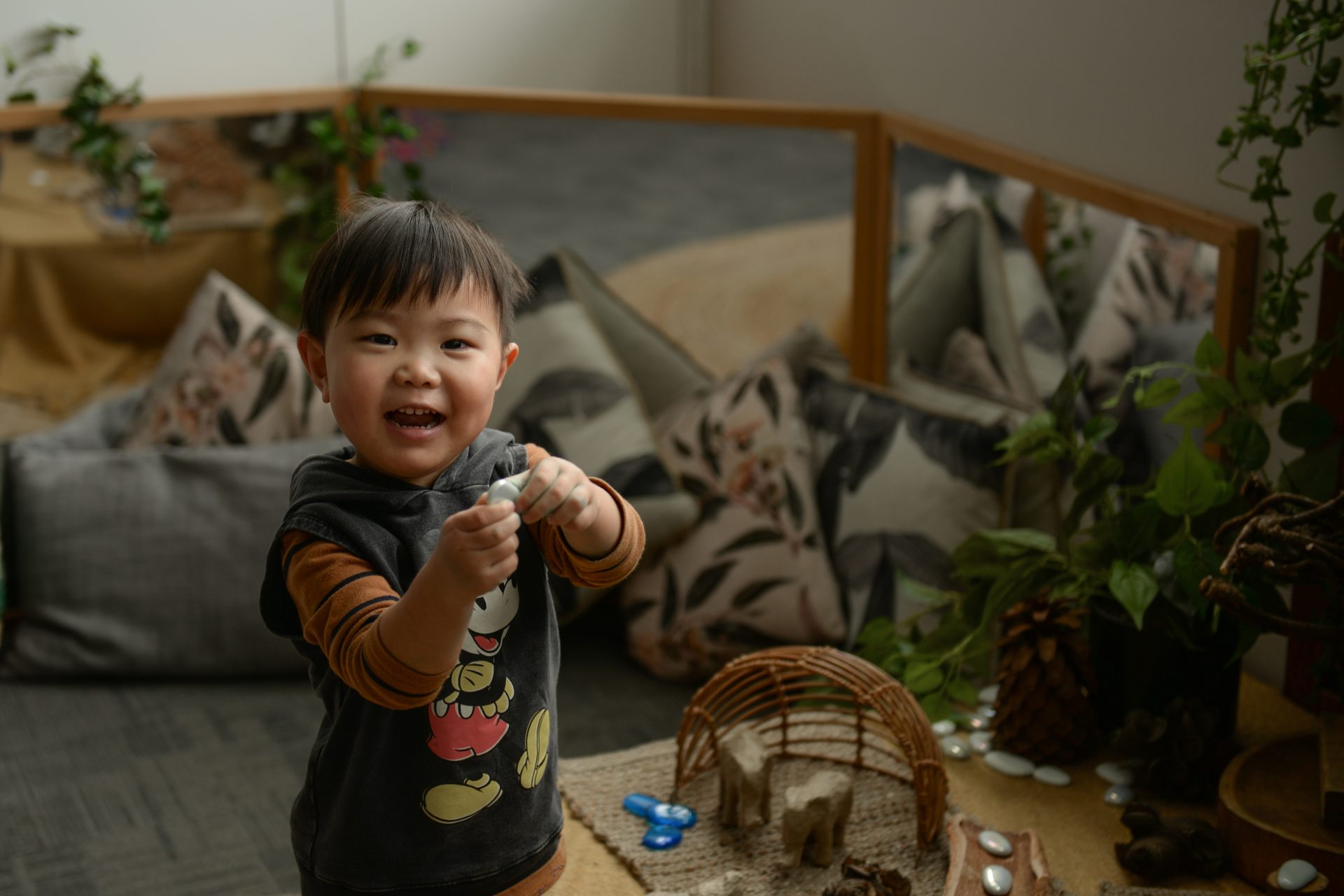
The well-known poem, ‘100 Languages of Children’ penned by Loris Malaguzzi, founder of Reggio Emilia, encapsulates what this acclaimed approach to early education represents.
‘The child has
A hundred languages
A hundred hands
A hundred thoughts
A hundred ways of thinking
Of playing, of speaking.’
What are the ’100 Languages of Children’?
Malaguzzi believed that every child is a competent, capable and creative thinker with infinite potential. The child’s innate curiosity and wonder drives their desire to discover the world
He believed that children expressed themselves creatively in a multitude of ways and that there were infinite possibilities for them to communicate and learn.
But his poem isn’t about a child’s verbal language skills.
The ‘100 languages’ are symbolic of the multi-faceted ways that children depict their understanding of the world. The possibilities are endless. Drawing, painting, writing, sculpting, building, climbing, dancing, singing, pretend playing, crying, imagining and laughing are all examples of ‘languages’ of self-expression which children use on their wondrous voyages of discovery.
In Reggio Emilia, each of these modes of expression is valued and nurtured. As children play and explore ideas, their various ‘languages’ intersect and integrate, building a deeper understanding of the world.
Traditional teaching methods vs Reggio Emilia
‘They tell the child:
to discover the world already there
and of the hundred
they steal ninety-nine’
Who exactly are ‘they’?
To understand this verse, we need to look at how traditional or mainstream schools differ from those that are inspired by the Reggio Emilia approach to education.
Traditional education methods follow a fixed curriculum which has set outcomes. Children learn by rote and by instruction from the teacher and the whole class often participates in the same activity at the same time.
In Reggio Emilia philosophy-inspired environments however, children are in charge of their own learning and topics emerge according to the things that interest the individual child. There’s no set curriculum with expectations for completion. The learning is child-directed as opposed to teacher-led and the curriculum is co-constructed by the child’s teachers, family, community and their environment.
There are no time limits for activities and the child’s knowledge journey is open-ended.
Who ‘steals’ ninety-nine languages?
The poem suggests that traditional early learning schools are the perpetrators, restricting the child’s opportunities for discovery and self-expression because of their rigid methods of instruction.
The poem also points a finger at what it refers to as ‘the culture’ which may allude to the adults in a child’s life who don’t acknowledge the child’s capabilities for self-directed learning.
You can read the full poem here.
How do Reggio Emilia inspired schools embrace the ‘100 languages’?
Exploration through play is at the heart of every Reggio-inspired environment where children are encouraged to creatively express their learning in multiple ways of playing, thinking, exploring, speaking and doing.
In Reggio-inspired early learning schools such as ours, children are encouraged to explore their natural curiosity in open-ended ways that stimulate their unique development journey. The educational programme in our safe, nurturing, non-judgemental and inclusive environment allows each child to learn at a pace and style that best suits their individual needs. If you’d like to discover more about Evoke Early Learning or our centres in Albert Park or Clayton, we welcome you to get in touch with us or book a tour. We pride ourselves on providing caring, nurturing and supportive environments for children and families and we’d love to meet you.

Tracey is a highly qualified educator and administrator and brings a strong combination of academic achievement, extensive work experience in the education and business sectors as well as drive and passion to her role as General Manager of Operations at Evoke Early Learning.
Tracey has a Master of Education and an Advanced Diploma of Business and holds VIT Dual Registration to teach in Early Childhood and Primary School settings. She’s also a VIT Trained Mentor Teacher and has worked in ECEC settings as a Director, Educational Leader and as a Victorian Senior Area manager. Her recognition as a state finalist in the recent Director of the Year Awards is testament to her achievements in the early education sector.
Her extensive work experience also included a stint as Head of Curriculum at the Royal Children’s Hospital Education Institute and positions as head of ICT at a number of large primary and secondary schools. Tracey is also experienced in not-for-profit sessional kindergarten settings and long daycare environments, so she has a deep understanding of what’s required to support the needs and expectations of young children, educators, parents and caregivers.
Tracey is responsible for operational management at Evoke Early Learning’s Clayton centre in Oakleigh East and their Albert Park centre in South Melbourne and is deeply committed to leading and driving effective and sustainable service delivery throughout the company.
Tracey is passionate about making a meaningful difference to young children, their parents and the wider community and under her expert guidance, Evoke Early Learning is continuing to raise the bar in quality early education and childcare.


